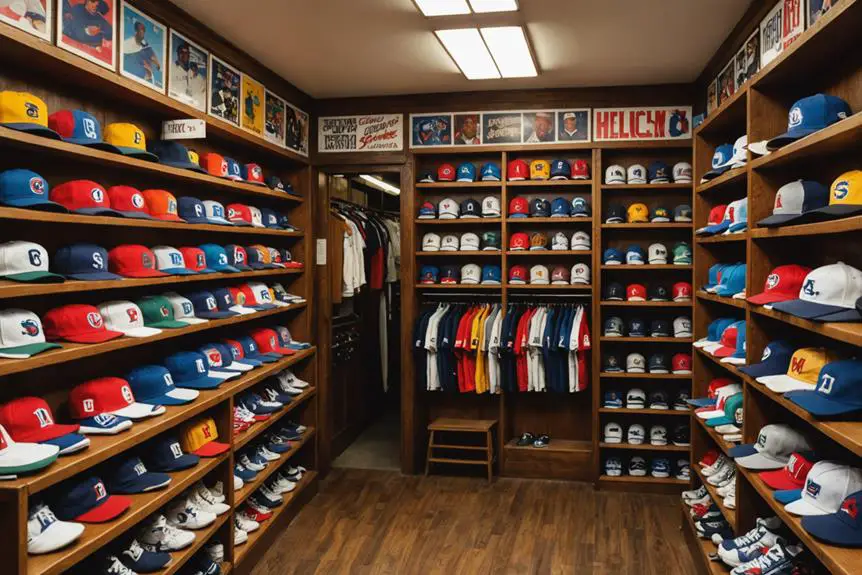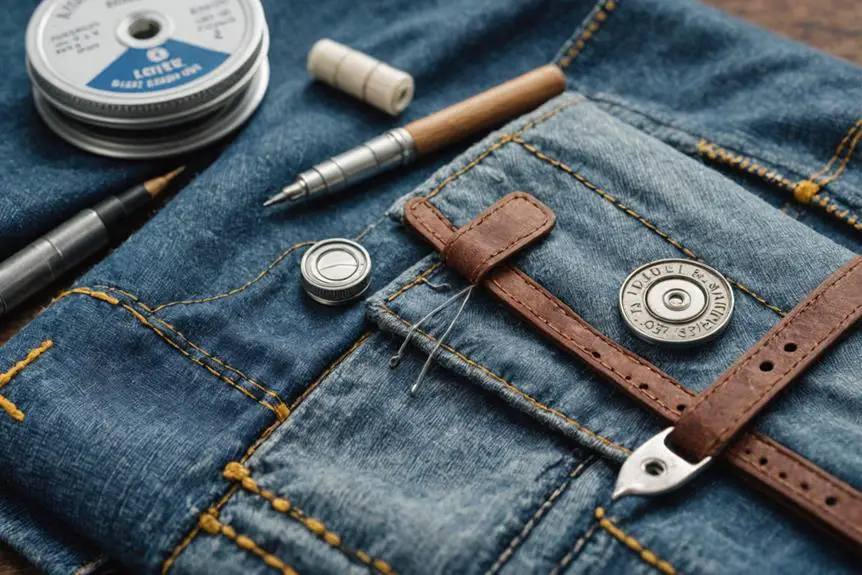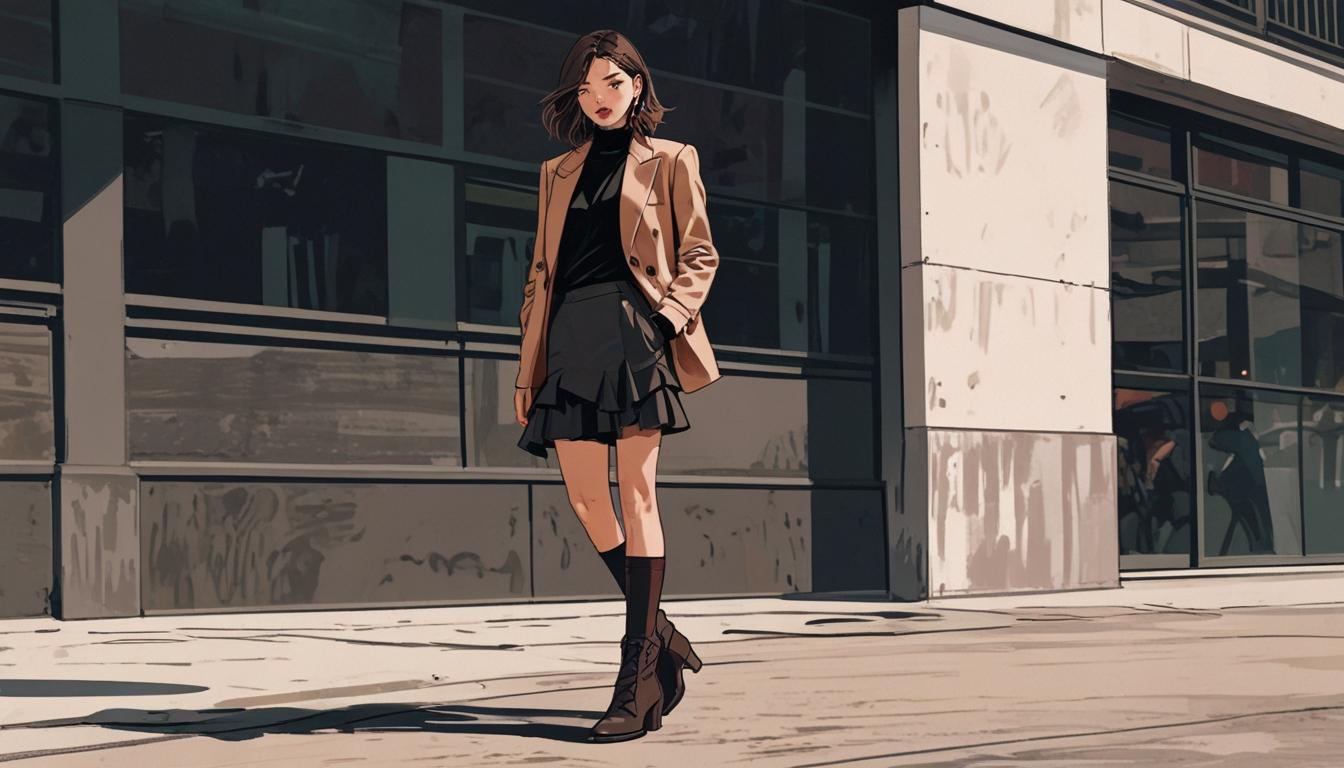Starter was founded in 1971 by David Beckerman in New Haven, Connecticut. He aimed to supply high school sports teams with uniforms that promoted community pride. The brand really took off in 1976 when it secured its first licensing deal with Major League Baseball, paving the way for partnerships with the NBA, NFL, NHL, and CFL by the early 1980s. Starter became famous for its stylish satin jackets, turning into a cultural phenomenon, especially in the '90s. If you're curious about how Starter navigated its peaks and valleys over the years, there's much more to explore!
Founding Years and Origins
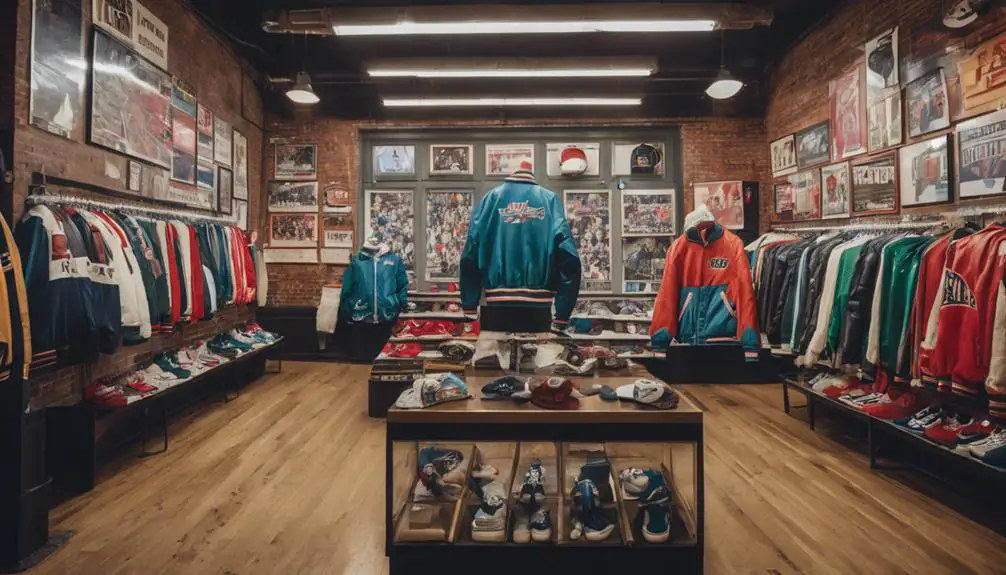
When you think about the origins of Starter, it all began in 1971, when David Beckerman founded the brand in New Haven, Connecticut. His vision was clear: to create high-quality athletic apparel that resonated with the community.
Initially, Starter focused on producing uniforms for high school sports teams, emphasizing the importance of local connections and community spirit. This approach helped the brand build a strong foundation in the competitive world of athletic wear and laid the groundwork for its later collaborations with professional sports leagues, a pivotal moment in its history.
In 1976, Starter took a significant leap by securing its first licensing agreement with Major League Baseball, marking the start of its transformation into a fashion staple in sportswear the brand's evolution. This was a game-changer for the brand, allowing it to produce jackets adorned with MLB insignias. Suddenly, Starter wasn't just about local high school teams; it was making waves in the broader sports industry.
By the early 1980s, the company expanded its reach even further, adding licensing agreements with other major professional sports leagues like the NBA, NFL, NHL, and CFL.
Starter became especially known for its signature satin jackets, which featured bold logos and knit cuffs that spoke to fans and athletes alike. These jackets not only became a fashion statement but also helped establish Starter's identity in the sports apparel market.
Through local manufacturing relationships and a commitment to quality, Starter laid the groundwork for its future success, all starting from humble beginnings in New Haven.
Growth Through Licensing Agreements
The pivotal growth of Starter can be largely attributed to its strategic licensing agreements with major professional sports leagues. When Starter secured its first licensing deal with Major League Baseball in 1976, it marked a turning point, allowing the apparel manufacturer to produce jackets featuring MLB insignias. This significant boost in brand visibility laid the groundwork for future success, ultimately establishing Starter as a significant sportswear brand in the 1980s known for its iconic athletic apparel and partnerships with professional teams a significant sportswear brand.
By 1983, Starter had expanded its reach by establishing licensing agreements with several key leagues, including:
- NBA (National Basketball Association): Connecting with basketball fans through stylish team apparel.
- NFL (National Football League): Creating a line of jackets that resonated with football enthusiasts.
- NHL (National Hockey League): Tapping into the hockey market with customized gear.
- CFL (Canadian Football League): Broadening its audience beyond the U.S. borders.
These licensing agreements enabled Starter to incorporate team logos and colors into their products, fostering a strong emotional connection between fans and their sports teams.
As a result, Starter transformed from a high school uniform provider into a household brand name associated with professional sports.
The company's licensing success propelled its meteoric rise in sales, grossing nearly $700 million annually at its peak in the early 1990s. This not only showcases the power of strategic partnerships but also highlights how Starter became a leader in the sports apparel market, effectively capturing the hearts of fans across North America.
Cultural Impact in the 1990s
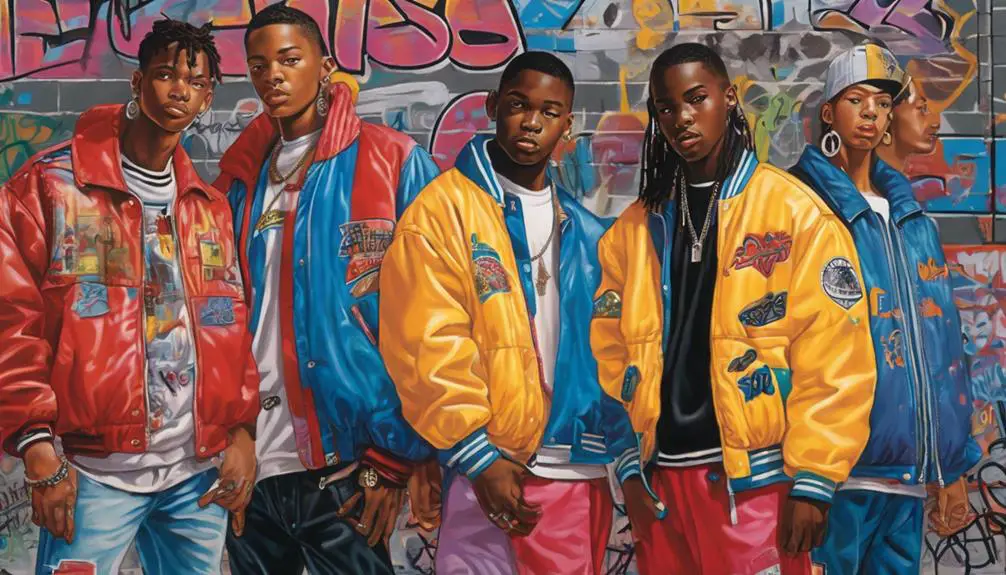
Starter jackets became a cultural phenomenon in the 1990s, transforming sports merchandise into a status symbol among youth and urban fashion enthusiasts. With bold designs and vibrant colors, these jackets quickly caught the attention of fans who wanted to showcase their allegiance to teams like the NFL and NBA. Thanks to strategic licensing agreements, Starter made it easy for people to wear their favorite team's logo proudly.
Endorsements from hip-hop icons such as Diddy and Run DMC played a significant role in skyrocketing the brand's popularity. As these stars donned Starter jackets, the brand became intertwined with hip-hop culture, making it more than just sportswear—it turned into a fashion statement. The sales figures reflected this shift, soaring from $58.9 million in 1989 to an impressive $356 million by 1991.
However, the desirability of Starter jackets also led to some complications. Their fashion appeal, while enticing, resulted in crime incidents, as some individuals sought to steal these coveted items. This troubling trend prompted several schools to impose bans on the jackets, as they became associated with safety concerns rather than just style.
Despite these challenges, Starter jackets undeniably marked a unique moment in fashion history. They bridged the gap between sports and streetwear, creating a lasting legacy that resonates even today.
As you think back to that era, it's clear that Starter jackets were more than clothing—they were a cultural touchstone that defined a generation.
Challenges and Market Decline
Intense competition emerged in the mid-1990s, posing significant challenges for Starter as rivals began to carve out their own share of the sports apparel market. The acquisition of the NFL Pro Line license by Logo 7 Inc. marked a turning point, reducing market growth from 38% to just 15% annually. Despite trying to appeal to younger demographics and expanding into licensed apparel, Starter faced mounting difficulties.
Here are four key challenges contributing to Starter's market decline:
- Increased Competition: Rivals like Logo 7 seized market opportunities, eroding Starter's once-dominant position.
- Sales Stagnation: Although Starter reported a 23% sales increase in early 1994, it suffered a $2.2 million loss by Q2, leading to stagnation at $57.8 million.
- Market Pressures: The MLB strike in 1994 and the NHL lockout severely impacted sales and brand visibility, complicating Starter's recovery efforts.
- Bankruptcy Filing: By 1999, Starter's struggles culminated in Chapter 11 bankruptcy, a dramatic fall from grace for a brand that once led the sports apparel industry.
These hurdles ultimately led to a diminished presence in the sports apparel market, as Starter grappled with the harsh realities of competition and changing consumer preferences.
While the brand made strides to adapt, external factors and poor timing proved insurmountable, sealing its fate in a rapidly evolving marketplace.
Recent Developments and Legacy
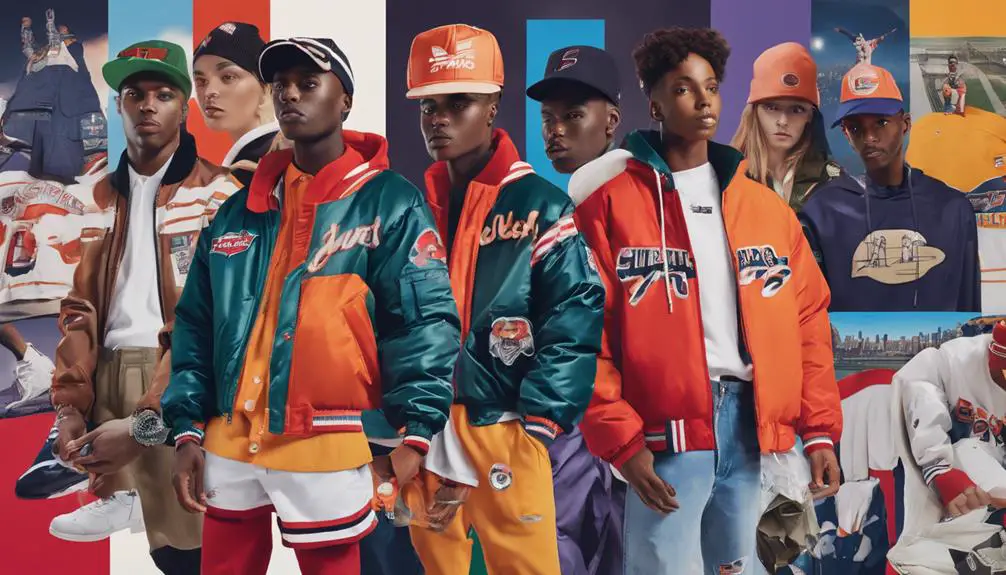
Since its acquisition by Iconix Brand Group in 2007, Starter has steadily rebuilt its brand and relevance in the sports apparel market. The brand experienced a notable revival in 2013, reintroducing its iconic satin and pullover jackets at major retailers like Foot Locker and Sports Authority. This move tapped into a wave of nostalgia for 90s fashion, drawing in collectors and fans enthusiastic to relive those vibrant years.
In 2019, Starter further solidified its presence by collaborating with Coca-Cola to create co-branded apparel, merging classic designs with contemporary tastes. This partnership showcased Starter's ability to adapt while honoring its roots in vintage clothing.
Today, you can find Starter products through various platforms, including Amazon and its official website, catering to a diverse audience that spans generations.
The brand's legacy shines as a significant influence on streetwear and sports culture, with a growing interest in vintage Starter apparel. You'll notice that Starter jackets are often seen on fans supporting their favorite sports teams, reflecting the brand's deep connection to athletic pride.
As the brand continues to evolve, it remains committed to honoring its history while embracing new trends. Starter's journey under Iconix Brand Group demonstrates how a brand can successfully navigate the ever-changing landscape of fashion, ensuring its place in both the past and the present.
With a focus on nostalgia and stylish innovation, Starter is poised to maintain its relevance for years to come.
